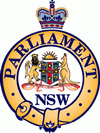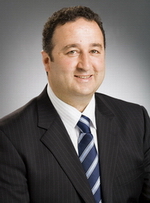
Sada-e-Watan
Sydney ™
sadaewatan@gmail.com

Speech of the
Hon.Shaoquett Moselmane MLC in NSW Parliament about PUBLIC WORSHIP
(The Hon.Shaoquett Moselmane, First
Australian of Arabic-Lebanese-Muslim MP delivered this speech on 26 May 2011)

PUBLIC WORSHIP
The Hon. SHAOQUETT MOSELMANE [6.01 p.m.]: In the next few months I intend to raise a number of issues of significant concern to religious minorities and, in particular, to the growing Islamic community of New South Wales. These include development applications for places of public worship and prayer houses, and associated ongoing community tensions whenever a local government authority receives such an application. Tensions run even higher than normal when a development application is from a minority ethnic or religious community. The whole process appears to drive a wedge between local residents and the religious community behind the application. A heightened sense of disharmony, suspicion and discord is created between various members of the New South Wales community as it works its way through national and sometimes international media outlets.
No doubt a place of public worship in a residential area has associated problems and can affect the quiet enjoyment of local residents. To resolve this problem the Government must take the initiative by amending the relevant planning laws and regulations to create religious development zones. Such a designated zone would allow the development of places of public worship without the associated trauma and community tensions. In addition, a specific, consultative, independent assessment body could be established to assist councils to assess and decide on such applications. There is a clear and urgent need to attend to this issue and it must be done as soon as possible to minimise, if not eliminate, simmering community tensions whenever such applications are lodged.
I call on the relevant Minister to progress the work of the former Minister for Lands, the Hon. Tony Kelly, in addressing the shortage of burial grounds for many minority ethnic and religious groups. This problem is most prominent in the Muslim, Buddhist, Vietnamese, Chinese, Coptic, Assyrian and other communities, to name a few. Today though, I refer to the 1984 Anti-Discrimination Board report, which recommended that the Anti-Discrimination Act be amended to include religion as a ground against discrimination thereby making it unlawful to discriminate on the ground of religious belief or absence of religious belief. The board recommended that:
The Anti-Discrimination Act be amended to include religion as a ground against discrimination and the interpretation of "religious belief" to be included in the Act should explicitly state that "religious belief" includes:
(a) religious practice as well as belief,
(b) theistic and non theistic, Christian and non Christian beliefs,
(c) a particular religion or religious, or all religions, and
(d) a comparable deeply held belief that can broadly be conceived of as religious.
In doing this, a practical means of redress may at last be available to those who at present have really had no effective avenue of redress against unjust religious discrimination. Therefore, a separate ground of religious discrimination would allow protection for those instances of discrimination that have no racial or ethnic basis. This relates to the 1994 half-hearted, backdoor attempt to make discrimination on the ground of religion unlawful under the name "ethno religious". The 1999 report on the Review of the Anti-Discrimination Act 1977 described the concept of ethno religious as a novel idea and saw the reasons for the amendment as largely obscure.
This report maintains that the insertion of this term in the definition in 1994 was almost certainly unnecessary and, more importantly, its scope was confusing. The justification for including religion as a ground against discrimination can be strongly argued that Australia, like many Commonwealth nation States, shares a legal culture of religious liberty and freedom of religious expression. I do not in any way argue that we should introduce religion in our everyday lives, but I do argue that if citizens of this State want or do not want to make their religion part of their everyday lives, their right to do so must be protected by State laws. As Justice Kirby noted in 1993:
Most of the concerns of these minority groups are governed by State laws. Thus they are not given much protection by the Federal constitutional provision . The fact remains that specific protection for religious freedom by way of prohibition of discrimination on religious grounds has not found favour in State laws despite the powerful arguments for it.
It has been 35 years since the introduction of the Anti-Discrimination Act 1977 yet this great State of ours has not implemented such a long-overdue amendment. It is perhaps ironic also, given the importance we attach to freedom of religion in our Constitution and in our support for a multicultural and multi-faith society, and given the necessary step to protect religious minorities from persecution. To date discrimination on the grounds of religious belief is still not covered by the Anti-Discrimination Act. This anomaly is further accentuated by the prohibitions that exist in other State and Territory jurisdictions but, unfortunately, not in New South Wales the so-called Premier State. [Time expired.]